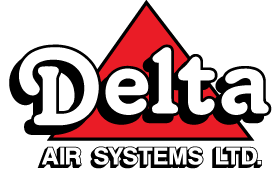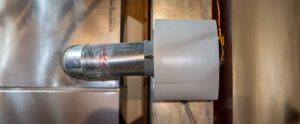Why It Matters More in Canada
If you live in Canada, you know how hard your furnace works—especially during our long, cold winters. And if you have central air conditioning, your system might be running all year. But there’s one small habit that can make a big difference in how well your system performs: changing your furnace filter regularly.
A clean furnace filter helps your HVAC system work efficiently, reduces your energy bills, and keeps the air in your home healthier. In this guide, we’ll break down how often to change your furnace filter in Canada, why it matters, and how to choose the right replacement schedule for your home.
What Does a Furnace Filter Actually Do?
Your furnace filter is your HVAC system’s first line of defence. It:
– Traps airborne dust, dirt, pollen, and pet dander
– Keeps your furnace’s blower motor and internal parts clean
– Protects your indoor air quality, especially if you have allergies
– Helps your system run more efficiently, which can lower heating and cooling costs
When the filter is dirty or clogged, air can’t move freely through your system. This forces your furnace to work harder, which can cause it to overheat, wear down faster, and use more energy.
How Often Should You Change a Furnace Filter in Canada?
The general rule is every 1 to 3 months, but that depends on a few key factors:
Filter Size
The size of the filter plays a major role in how long it lasts.
1-inch: Every 1–2 months
Larger filters have more surface area and can hold more dust before becoming clogged.
MERV Rating
MERV stands for Minimum Efficiency Reporting Value. It measures how well a filter traps small particles.
– MERV 1–4: Basic filters – change every 1–2 months
– MERV 5–8: Standard home filters – change every 2–3 months
– MERV 9–12: High-efficiency filters – change every 3–4 months
– MERV 13+: Premium filters for allergy sufferers – may clog faster
High-MERV filters are better at trapping particles, but they can clog more quickly in dusty homes or during the heating season.
Your Home Environment
Canadian homes vary widely, and your filter’s lifespan depends on factors like:
– Pets: Hair and dander clog filters quickly
– Dust: High traffic or recent renovations increase dust levels
– Wood-burning fireplaces or smokers: Add airborne particles
– Air fresheners or candles: Scented oils can cling to filters over time
Seasonal Use in Canada
With our long heating seasons, filters in Canadian homes get used hard—especially in winter. Here’s what to expect:
– Winter: Heavy furnace use – check monthly
– Spring: Pollen and dust – change if allergies flare up
– Summer: Central AC also uses the furnace filter – check regularly
– Fall: Ideal time to start the heating season with a fresh filter
Warning Signs Your Filter Needs Changing
Not sure if it’s time to replace your filter? Watch for these signs:
– Dust building up around vents or returns
– Your furnace seems to run longer than usual
– Uneven heating or stuffy air in certain rooms
– Allergy symptoms or irritated sinuses indoors
– Your energy bill suddenly goes up
– The filter looks dark or visibly dirty
Tips to Stay on Top of Filter Changes
1. Set a monthly reminder in your phone or calendar
2. Buy filters in bulk so you always have the right size on hand
3. Label the next-change date on the frame of each new filter
4. Check your furnace manual for specific filter size and type
5. Use a log (sticky note, app, or spreadsheet) to track changes
What Kind of Filter Should You Use?
Not all filters are created equal. Here’s what to keep in mind:
– For average households: MERV 8–11 is ideal
– For allergy sufferers: MERV 11–13 captures smaller particles
– For families with pets or wood-burning appliances: use a higher-efficiency filter and check more frequently
– Avoid ultra-high MERV filters unless your system can handle it (they can restrict airflow too much)
Can You Clean and Reuse a Furnace Filter?
Only if it’s specifically labeled as washable or electrostatic.
Most home furnace filters are disposable and should be thrown away and replaced.
Washing a standard disposable filter can damage its fibers and make it ineffective.
What If I Live in the Kitchener-Waterloo Area?
If you’re in Southern Ontario, including Kitchener, Waterloo, Cambridge, or Guelph, you’ve likely experienced the full range of seasonal challenges—dry winter air, spring dust, summer humidity, and fall allergens.
That means your HVAC system works hard year-round, and your furnace filter is a key player in keeping your home clean and efficient. Checking it monthly and replacing it as needed is one of the easiest ways to maintain your system and avoid costly breakdowns.
Conclusion
Changing your furnace filter is simple, inexpensive, and powerful.
Remember:
– Check it once a month
– Replace it every 1–3 months
– Adjust for season, filter size, and your home environment
A clean filter keeps your furnace healthy, your home comfortable, and your air clean—especially in a climate like Canada’s.
Need Help or Have Questions?
If you’re unsure which furnace filter is right for your home or need help with HVAC maintenance, the team at Delta Air Systems is here to help. We’ve been serving Kitchener-Waterloo homeowners for over 65 years, and we’re just a phone call away.
Call us at 226-784-1276 or visit www.deltaairsystems.com to book a service or get expert advice.





